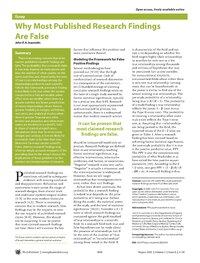
Assessing the relative validity of a new, web-based, self-administered 24 h dietary recall in a French-Canadian population
Sign Up to like & getrecommendations! Published in 2018 at "Public Health Nutrition"
DOI: 10.1017/s1368980018001611
Abstract: Abstract Objective To assess the relative validity of a new, web-based, self-administered 24 h dietary recall, the R24W, for assessment of energy and nutrient intakes among French Canadians. Design Each participant completed a 3d food… read more here.
Keywords: r24w; web based; new web; validity new ... See more keywords

Relative Validity and Reproducibility of a Semi-Quantitative Food Frequency Questionnaire for Determining Nutrient Intake in Older Adults in New Zealand: The REACH Study
Sign Up to like & getrecommendations! Published in 2022 at "Nutrients"
DOI: 10.3390/nu14030519
Abstract: Dietary intake is an important predictor of health and disease outcomes. This cross-sectional study evaluated the relative validity and reproducibility of a semi-quantitative food frequency questionnaire (FFQ) for assessing energy and nutrient intake in older… read more here.
Keywords: reproducibility; validity reproducibility; new zealand; relative validity ... See more keywords

The Relative Validity and Reproducibility of Food Frequency Questionnaires in the China Kadoorie Biobank Study
Sign Up to like & getrecommendations! Published in 2022 at "Nutrients"
DOI: 10.3390/nu14040794
Abstract: Background: Short versions of qualitative and quantitative food frequency questionnaires (FFQs) are widely used to assess usual food intake. However, fewer studies evaluated their relative validity and reproducibility in the Chinese population. Methods: This study… read more here.
Keywords: food; validity reproducibility; reproducibility; classification ... See more keywords

The 72-Item Semi-Quantitative Food Frequency Questionnaire (72-Item SQ-FFQ) for Polish Young Adults: Reproducibility and Relative Validity
Sign Up to like & getrecommendations! Published in 2022 at "Nutrients"
DOI: 10.3390/nu14132696
Abstract: The food frequency questionnaires (FFQs) are the most common tools used in dietary research. Each newly developed, modified, or adapted FFQ should be validated in the target population. The aim of this study was to… read more here.
Keywords: reproducibility; item ffq; food; item ... See more keywords

Relative Validity and Reproducibility of Dietary Measurements Assessed by a Semiquantitative Food Frequency Questionnaire among Chinese Healthy Adults
Sign Up to like & getrecommendations! Published in 2023 at "Nutrients"
DOI: 10.3390/nu15030545
Abstract: This study aimed to evaluate the relative validity and reproducibility of a semiquantitative food frequency questionnaire (SFFQ) in adult populations in China. Among the 49 recruited healthy participants (age range: 20–60 years), the relative validity… read more here.
Keywords: food; validity reproducibility; sffq; relative validity ... See more keywords

Relative Validity and Reliability of the Remind App as an Image-Based Method to Assess Dietary Intake and Meal Timing in Young Adults
Sign Up to like & getrecommendations! Published in 2023 at "Nutrients"
DOI: 10.3390/nu15081824
Abstract: Image-based dietary records have been validated as tools to evaluate dietary intake. However, to determine meal timing, previous studies have relied primarily on image-based smartphone applications without validation. Noteworthy, the validation process is necessary to… read more here.
Keywords: image based; relative validity; intake; method ... See more keywords